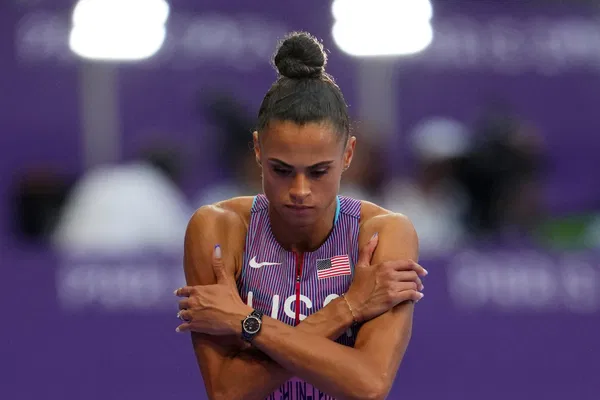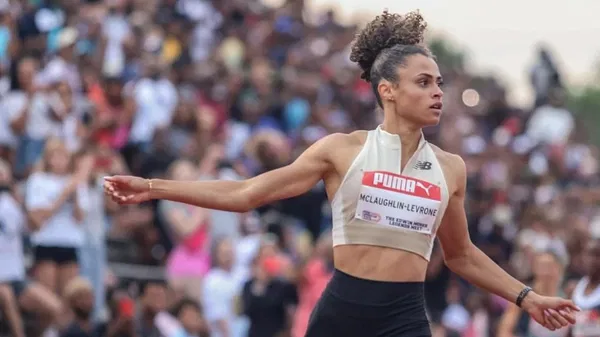
“Things are not always what they seem” is a timeless proverb that aptly encapsulates the journey of Sydney McLaughlin-Levrone following her Olympic debut. At just 16, McLaughlin captured the hearts of track and field fans worldwide, earning a spot in the 400-meter hurdles semifinals. However, behind the celebration and recognition lay a reality that was far from glamorous for the young athlete.
McLaughlin-Levrone’s path to the Olympics was paved with years of relentless hard work. Yet, the fame that accompanied her achievement brought unexpected challenges. Reflecting on her experience in her book, Far Beyond Gold: Running from Fear to Faith, the 25-year-old revealed how fame changed her life dramatically, especially during her time at Union Catholic High School.

The intense spotlight placed on McLaughlin-Levrone after her Olympic performance proved overwhelming. She recalled how, before her debut, people admired her speed with surprise and praise. After the Olympics, however, she became a household name, with people recognizing her before races and snapping photos. The attention, while validating to some, felt unnatural to her as a teenager. “The pedestal isn’t natural,” she noted, emphasizing how the sudden fame created issues in her personal and social life.
The impact of this fame extended to her relationships, particularly with her teammates. McLaughlin-Levrone described how the pedestal she was placed on created friction, resulting in exclusion, whispering, and even bullying during her senior year. The situation eventually pushed her to withdraw from representing her school at the national championships, an opportunity she later regretted letting slip.
Her struggles with mental health predated her Olympic appearance in Rio 2016. McLaughlin-Levrone admitted to feeling immense pressure leading up to the Olympic Trials, a pressure she placed on herself despite the absence of external expectations from her father, a former U.S. Olympic Trials competitor. At times, her self-doubt became so consuming that she considered quitting the race altogether. Despite these challenges, she secured a spot on the Olympic team, though the anxiety never fully subsided.
In Rio, the young athlete found herself grappling with fear and burnout. Reflecting on the period, she recalled how the months leading up to the Olympics felt relentless, leaving her yearning for the simpler experiences of teenage life. Upon returning to the U.S., the fame she gained didn’t bring her the fulfillment she had hoped for; instead, it amplified her internal conflicts.
Despite the hardships, McLaughlin-Levrone emerged stronger. Over time, she learned to navigate the complexities of fame and the emotional toll it exacted. Today, she stands as a reigning Olympic champion and world record holder in the 400-meter hurdles, a testament to her resilience and growth. Her journey serves as a powerful reminder of the pressures young athletes face and the strength required to overcome them.